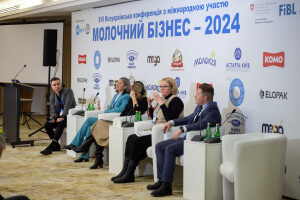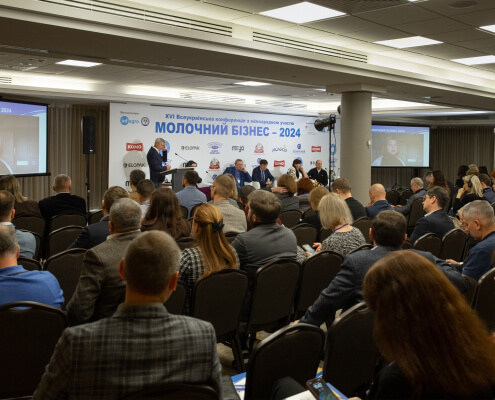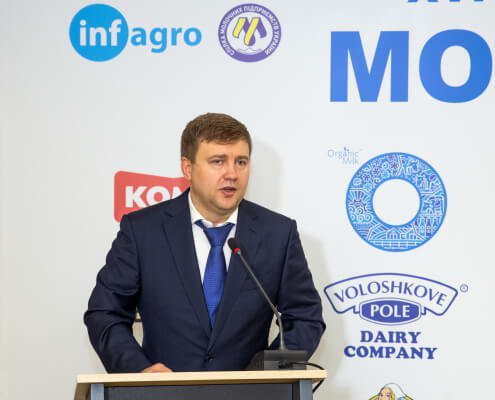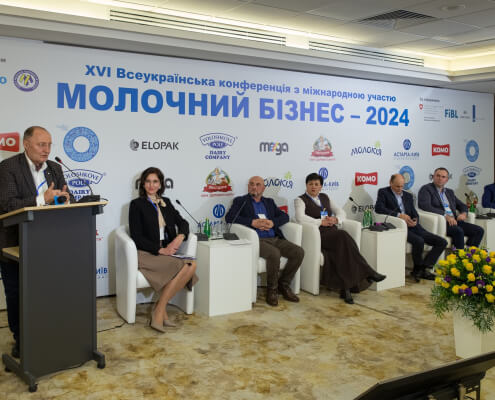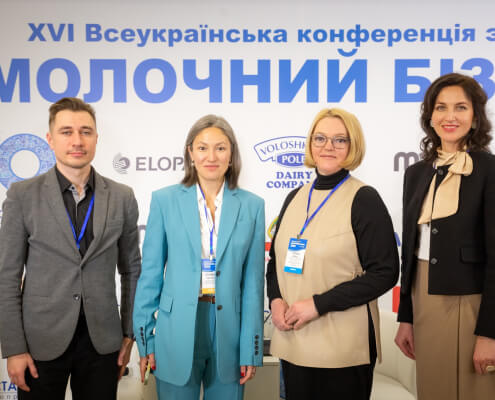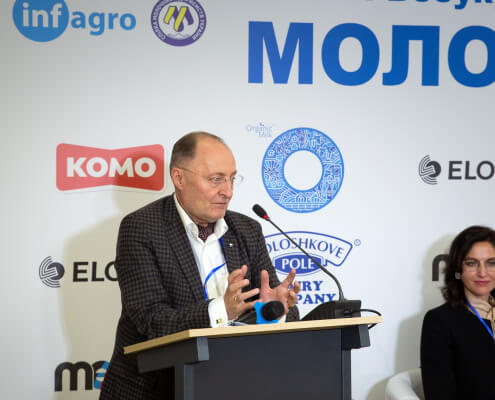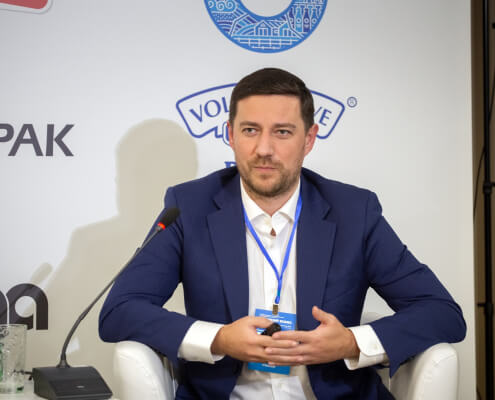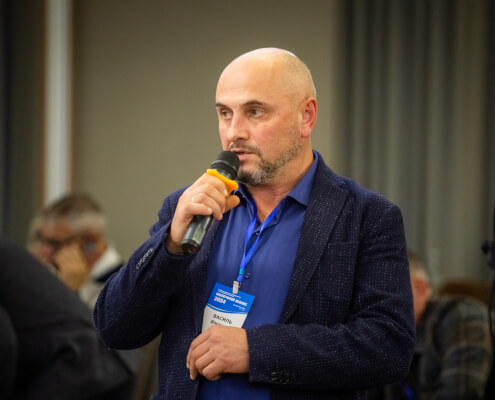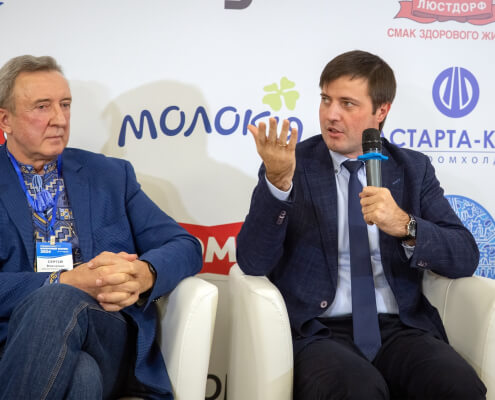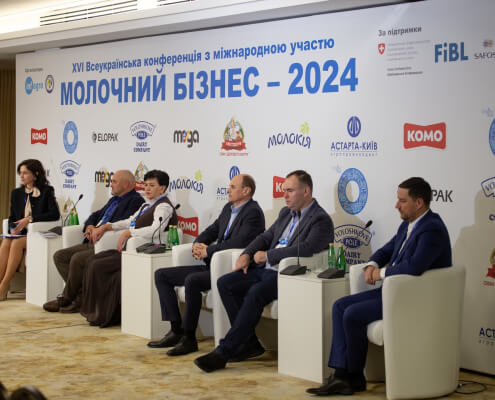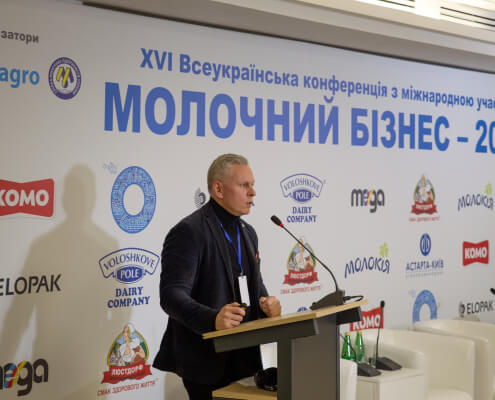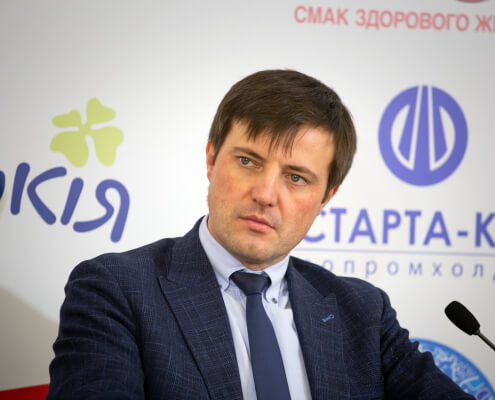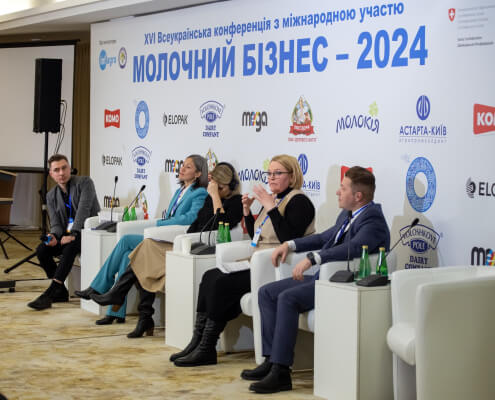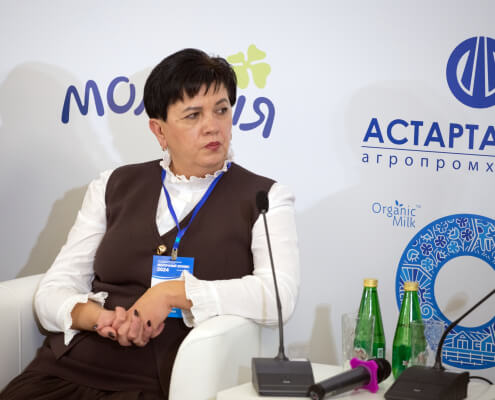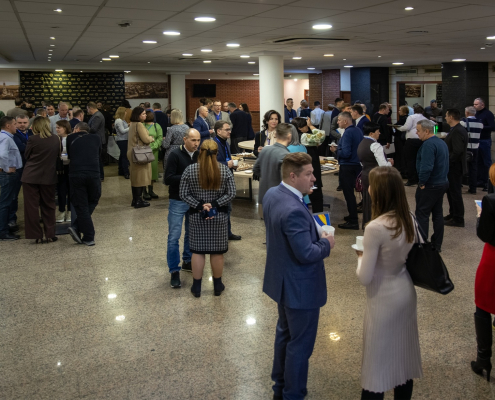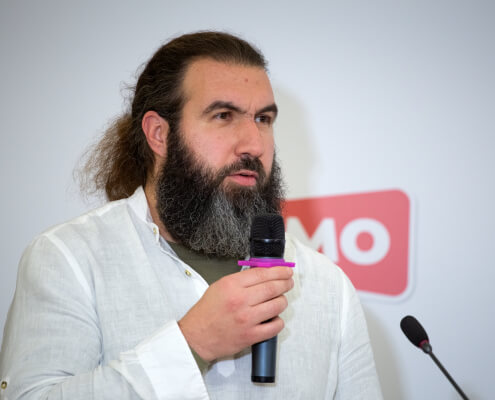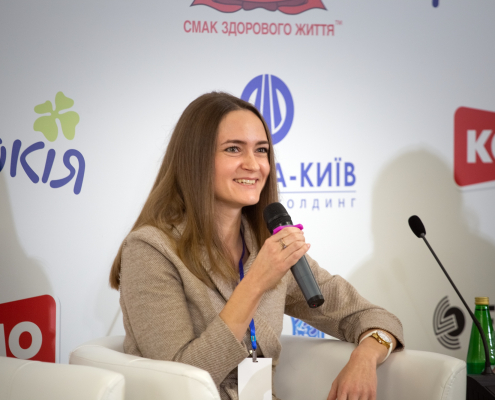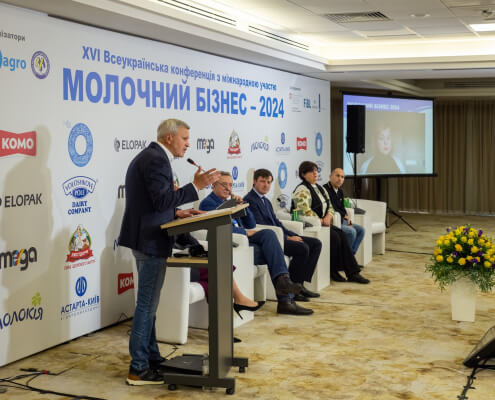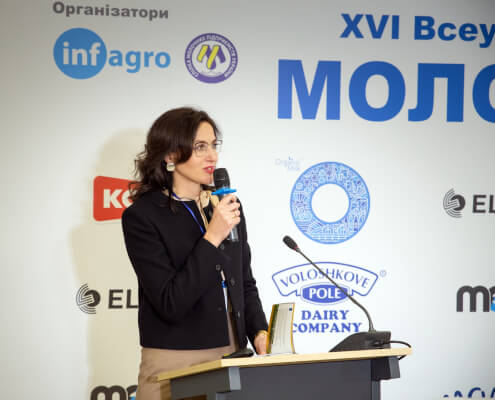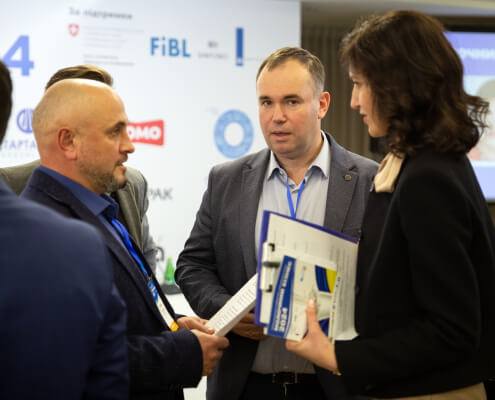Dairy Business – 2024: Conference Participants Discussed Challenges and Prospects of Ukraine’s Dairy Sector On November 28, Kyiv hosted the 16th All-Ukrainian Conference with international participation, Dairy Business – 2024. Delegates were welcomed by Vadym Chaharovsky, Chairman of the Union of Dairy Enterprises of Ukraine, Albert de Groot, the newly elected President of the European Dairy Association (EDA), and Vitaliу Koval, Minister of Agrarian Policy and Food of Ukraine. In his address, Vadym Chaharovsky emphasized that the dairy sector remains a vital component of Ukraine’s agricultural industry. Despite the challenging wartime conditions, production is beginning to grow, particularly in western regions. Albert de Groot expressed EDA’s support for liberalizing trade in dairy products and fully integrating Ukraine into the EU free market. Vitaliy Koval highlighted the importance of dairy farming in Ukraine’s agricultural sector, its development prospects, and the need to compete with imported products in the domestic market. He thanked the Union of Dairy Enterprises of Ukraine for actively establishing connections with European colleagues and promoting Ukrainian companies within the EU. Leonid Tulush, Head of the Expert-Analytical Department of the Union of Dairy Enterprises of Ukraine, presented a comprehensive analysis of Ukraine’s dairy industry, highlighting the challenges faced by dairy processors and proposing potential solutions. Yuriy Voichak, Head Sales Department MMMD at Oschadbank, spoke about financial opportunities available to Ukrainian dairy businesses. One key discussion focused on the decade-long issue of relationships between milk processors and retail chains. Representatives from all supply chain segments participated, including raw milk producers (Olena Zhupinas, Deputy Director of the Association of Milk Producers, and Ion Moraru, Project Manager “Dairy Farming Development” at the Union of Dairy Enterprises of Ukraine), processors (Serhii Vovchenko, Head Supervisory Board, Milk Alliance), and retailers (Nataliya Petrivska, Executive Director, Ukrainian Food Retail Alliance). State bodies representatives, including Hanna Lichman, People’s Deputy of Ukraine, Committee of the Verkhovna Rada on Economic Development, and Taras Vysotskyi, First Deputy Minister of Agrarian Policy and Food of Ukraine, addressed the long-standing legislative issues surrounding delayed payments for delivered goods and the need for regulatory solutions for the retail sector. The discussion, moderated by Arsen Didur, Executive Director of the Union of Dairy Enterprises of Ukraine, saw supply chain representatives share their challenges and advocate for resolving relationship issues based on established European practices. Hanna Lichman invited processors to join a working group dedicated to these matters. Following a cheese tasting by KOMO and Club Cheese, participants engaged in a panel discussing the current status and prospects of the dairy sector’s EU integration. Moderated by Maksym Fasteyev, Project Partner INFAGRO, Adviser of the European Integration Committee of the Union of Dairy Enterprises of Ukraine, the panel featured insights from European colleagues. Speakers included Jukka Likitalo, General Secretary of EUCOLAIT, Carolien Spaans, Agricultural Counselor at the Embassy of the Netherlands in Ukraine, and Jerzy Plewa, an expert with Team Europe Direct, who shared lessons from Poland and other countries on joining the EU. Elisabeth Sviatkivska, Coordinator of the European Integration Committee of the Union of Dairy Enterprises of Ukraine, and Vasyl Antonenko, Head of the Expert Group of Sanitary and Phytosanitary Measures of the Government Office for Coordination of European and Euro-Atlantic Integration of the Secretariat of the Cabinet of Ministers of Ukraine, discussed how Ukraine’s dairy sector plans to meet EU standards. Throughout the discussion, the prevailing message was that changes must be planned, specific, and implemented swiftly, as EU integration means adapting to European rules in the near future. Currently, about 60 Ukrainian dairy enterprises are certified to export to the EU and are successfully promoting their products on European markets. However, much work remains, particularly in meeting animal welfare requirements and other standards. Continuing the topic of modernization, Michal Erdasek, Key Account Manager at MEGA, a company well-known among Ukrainian dairy processors, presented opportunities for adopting advanced technologies. Trade in dairy products on domestic and international markets was the focus of another panel, moderated by Iryna Vysotska, Dairy Sector Component Coordinator, QFTP. Kyrylo Yezhov, Director of Business Development at KANTAR Ukraine, shared insights from research on changes in Ukrainian consumer behavior during the war, providing valuable information for dairy producers about current consumer preferences. Daryna Rieznikova, Head of Short Shelf-Life Goods Department at Metro Cash & Carry Ukraine, discussed plans to reduce dependence on promotional campaigns and shared methods for maintaining customer loyalty. International trade discussions featured Julie Collard, Economic Affairs and Trade Manager at EUCOLAIT, who presented global trade data and insights into the impact of international trade agreements and policy on exports. Vasyl Vintoniak, Director of INFAGRO, reviewed Ukraine’s dairy export dynamics over recent years, highlighting changes during the first year of the full-scale invasion and the impact of the EU’s Autonomous Trade Measures. Export experiences were shared by Iryna Vikhtiuk, Export Director of Voloshkove Pole, and Yuriy Shablienko, Deputy Director for Exports Development, GC Continium. Prospects and opportunities for expanding exports were discussed by Yuriy Shevchuk, Vice President of Olam Food Ingredients, Head of the Dairy Sector CIS & MENA, and Oleksiy Grushetskyi, Deputy Director of Export Promotion of the State Institution “Entrepreneurship and Export Promotion Office”. The conference reaffirmed the unity of those preserving and developing Ukraine’s dairy sector. Even amidst the challenges of war, they continue producing dairy products for domestic consumers, breaking into new export markets, and preparing to integrate into the EU free market.
